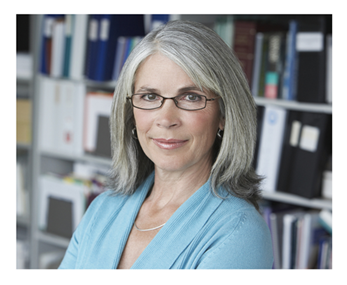When addressing the issue of starting over at age 50 or older, we often consider relocation. We do so in light of personal taste, desired lifestyle, and finances — both affordability and earning options. But in middle age, the factors involved in where and how to make a fresh start are much more numerous, with or without involving a move, especially after divorce or widowhood.
 In fact, the enormity of starting over in our 50s can seem overwhelming. Typically, we’re dealing with more “baggage” than when we’re younger. We’re facing the growing cultural bias of aging. We’re navigating matters of health, career, education, extended family, and perhaps the desire for a partner a second (or third) time around…
In fact, the enormity of starting over in our 50s can seem overwhelming. Typically, we’re dealing with more “baggage” than when we’re younger. We’re facing the growing cultural bias of aging. We’re navigating matters of health, career, education, extended family, and perhaps the desire for a partner a second (or third) time around…
It’s no wonder that any of us in this position might say “Where do I begin?”
50+ Is a Mixed Bag
The nature and extent of starting over at midlife varies, of course. It may include taking on the challenges of adjusting to a marital status change with both obstacles and opportunities; making new friends over 50, following divorce, job loss or downsizing; beginning a new career, of necessity or design; or plunging into an altogether new set of adventures by relocating – whatever your reasons for doing so.
(For my most recent adventure in starting over in a new place, pop by this 2018 relocation tale and this explicit additional advice.)
As for the initial relocation challenge — where to go, based on individual needs — here is a related excerpted comment on starting over, from a reader by the name of Michelle:
… I’m 50 yrs old and [a] single parent of a 17 yr old… I am currently staying with my widowed mother. I don’t like my living situation and I plan to move in 2 yrs after my son finishes his 2 yrs at comm college… I don’t have a good job now, it’s a clerical job at a hospital. If I could I would move out now, but I don’t have the money. I am looking for training in a new career field, but I don’t know where to start. All I know is I can barely survive on what I make now. (My hours were cut twice!!), I have to get some kind of specialized training… feel alone… any advice is appreciated.
How many of us have been here in some way – or all ways? Who would like to jump in with their experience, ideas, or suggestions? Who can contribute to input on relocating over 50, and how to prepare in terms of jobs and logistics?
50 Years Old: What Does it Really Mean?
In our youth-obsessed country, age 50 seems to be a sort of trigger. When you hit the fifties as an age bracket, you may feel as if you’re dropping off the earth.
 If you’re in a good relationship or marriage and you don’t need the online dating world, then you haven’t experienced the dating-and-mating conundrum that is fifty-something prejudice.
If you’re in a good relationship or marriage and you don’t need the online dating world, then you haven’t experienced the dating-and-mating conundrum that is fifty-something prejudice.
If you’re successfully self-employed, if you’re secure in a position, if you’re financially independent or supported by a spouse, you haven’t yet (and possibly won’t) feel the traditional career options closing in.
That’s a lot of if’s, don’t you think?
As for health, there are no magical guarantees against accident or illness at any age. Many enter their 50s feeling strong and well. But the likelihood that time will take a gradual toll on the body is higher as we get older. That deserves consideration – whether we’re “starting over” or not.
Education and training? Let’s not confuse the two. Both are options at any age; their purpose, focus and costs will certainly vary; financing may be the tricky part but the benefits (and pleasure), great.
Age 50: Spin All You Want, but the Stigma Is Real
For all the hyper-cheerful spin we see around the web on “50 is the new 40” (and sometimes “60 is the new 40”), not to mention how “fabulous” the 50s are, the reality is that aging stigma still persists. We all practice it to some degree (whether we wish to or not), though in different ways and with regard to different ages.
For many, 50 is the point at which we perceive (or imagine) someone to be “old” – certainly on paper.
But how old is too old for starting over? How old is too old for remaking a career? How old is too old for flying one’s own nest? How old is too old for becoming financially secure?
How do you start over at 50? At 55? At 60? Shouldn’t you combine a “can do” attitude with realistic expectations?

This article from The New York Times takes the realism approach. In “Over 50 and Under No Illusions,” we are reminded that many hitting middle-age find themselves here:
… Too young to retire, too old to start over. Or at least that’s the line… Almost overnight, skills honed over a lifetime seem tired, passé. Twenty- and thirty-somethings will gladly do the work you used to do, and probably for less money… Many people are so disheartened that they’ve simply stopped looking for work.
For millions of Americans over 50, this isn’t a bad dream — it’s grim reality. The recession and its aftermath have hit older workers especially hard. People 55 to 64 — an age range when many start to dream of kicking back — are having a particularly hard time finding new jobs.
New Career at 50, 55, 58… Impossible Dream?
So. Does the article above send us spiraling down into resigned acceptance and depression? Should the reader who commented throw her arms up in the air and accept “barely surviving” while living with her widowed mother?
What kind of work can you get at 50 or 55 or older? Is the sky the limit if you’re healthy, a go-getter, and lucky? Or are there practical constraints no matter what?
 The Times article goes on to offer examples of individuals who retooled, took chances, relocated, and ultimately found new and financially viable careers. But the examples don’t pertain to most of us, though the importance of networking, determination, taking risk and “a bit of luck” are essential. Still, what if you don’t have a network? How do you create it? What if you know you need new skills? How do you decide what they are? And if you’re willing to relocate, how do you choose a new city or region?
The Times article goes on to offer examples of individuals who retooled, took chances, relocated, and ultimately found new and financially viable careers. But the examples don’t pertain to most of us, though the importance of networking, determination, taking risk and “a bit of luck” are essential. Still, what if you don’t have a network? How do you create it? What if you know you need new skills? How do you decide what they are? And if you’re willing to relocate, how do you choose a new city or region?
As Michelle asks: Where to begin?
Naturally, if you can afford it, a career coach, life coach or other advisers can guide you toward some answers. If you go this route, be sure to verify credentials and experience, and check references. All “coaches” are most certainly not created equal!
Do keep in mind that friends and acquaintances can be more helpful than you realize. Be open to their suggestions, their observations of your skills, and don’t be shy about enlisting them to assist in building a network. Most of us get jobs (or work) through personal connections; in my experience, the older we get the more important it is to realize this.
A Note on Further Education
Perhaps you feel that going to college (at last!), finishing college (at last!) or pursuing graduate education — even at 50 or older — will open more doors.
My own mother went back to college – a very fine university in the Boston area at that — when she was otherwise a stay-at-home wife and mother. She began that process at 30, graduated at 40, and was extremely proud of that accomplishment. Since she found herself divorced and on her own in her 50s, that college degree was helpful. Those were, however, different times. The workforce was very much a different place. And the cost of that education, just a fraction of today’s price tag.
In her 60s, she went back to school again, this time in a continuing education program, more than anything for her own enjoyment.
Do do your homework if what you are really after is job opportunity. You may be better off with a training course – and be sure to vet any class, course, seminar, or certificate program (online or otherwise). Or, you may be able to take evening or continuing education classes, far less of a financial investment than a full-blown college program, if you are fortunate enough to live near a university that offers them.
Many excellent universities also offer online courses and programs. (Again — Google and do your vetting and research.)
The reason I suggest continuing ed, more accessible/focused programs, or for that matter community college classes is this. Depending upon your goals, it’s important to see if you can actually stay the course – the rigors of pursuing your education – not to mention the money and time it will take. And, if you are targeting an industry that is predominantly “young,” you’re going to be fighting an uphill battle regardless.
Google is certainly not the only way that you can research, but it is an easy way to begin the process. Likewise, for purposes of researching scholarship money that may be available to you. Once you’ve researched your options, talk to administrators and if possible, graduates. Be realistic about your goals in speaking with them. Follow up on statistics to do with successful job placements, and not just for 20- or 30-year-olds.
New Careers After Age 50
This article on MSN Money, “10 New Careers After Age 50,” points out the advantageous qualities of a mature employee, including reliability and wisdom. Among the fields suggested are:
- coaching (which certainly uses your professional and life experience)
- health care-related (a growth area, adding millions of jobs)
- assisted living/eldercare (again, much needed with our aging population)
- tour guide! (Why not?)
- providing home care
Other suggestions appear as well, some of which make sense if you are already in the profession. Others, in my opinion, make little sense at all. And of course, your physical and emotional fitness for certain occupations must be considered.
That said, ‘tour guide’ is thinking outside the box. And the emphasis here may well be on using your experience, your vitality, your interpersonal skills developed over a lifetime, and also your curiosity.
Stop by here for more detail and expert tips (2015) on reinventing your career after 50.
Specifics When Reinvention Is Overwhelming
Are these suggestions and others like them useful?
I would say yes, in a limited fashion, keeping in mind the note above regarding your fitness for these (or other) jobs. Also critical — how much you will earn and if it is enough.
So how do we tangibly begin when the prospect of reinvention is overwhelming? When money is already scarce? When we feel drained, demoralized by looking for work with no success, and alone?
 Michelle’s situation is not uncommon: job cut back, dwindling funds, a single mother not quite “free,” an elder parent, and yes, over the magic number “50” at which bias in our society is prevalent and, especially for women, looks, energy, and perception by others will be very important in securing work.
Michelle’s situation is not uncommon: job cut back, dwindling funds, a single mother not quite “free,” an elder parent, and yes, over the magic number “50” at which bias in our society is prevalent and, especially for women, looks, energy, and perception by others will be very important in securing work.
I wish I didn’t have to state what I just did, and I would happily entertain an opposing view from both men and women, but anyone who is not working a home-based job knows this to be reality.
So here are thoughts I have when it comes to where to begin as you consider starting over. I welcome your comments and recommendations – for Michelle, and for the rest of us.
Reinvention, Relocation: Lists and Planning
Incidentally, before you begin, it’s helpful to clearly identify what you want to achieve through your reinvention. It may be as “simple” as finding a job and keeping a roof over your head, leaving behind a location where you feel stagnant or you’ve experienced loss, or finding meaning after divorce and Empty Nest. And if you’re having trouble with this step, try this: “I want to start over because ___________” and then fill in the blank.
Personally, I like the unimposing nature of making simple lists. A plan can come later, but a list encourages self-examination, a bit of dreaming, development of pros and cons, and maybe a healthy dose of “why not.” My own approach would include the following.
- Make a practical, realistic “wishlist” to begin: The environments you like (office, museum, outdoors/indoors), the people you enjoy, your ideal working conditions, what you know you’re good at, what interests you… the “you” that you envision in your ideal scenario.
- Note that if you are looking for a “career,” that’s different from looking for a decent-paying job with compensation that allows you to live. I make the distinction because the timeframe, compromises, and investment may be different on the former versus the latter.
- For specific fields, search the Internet for the term + “training.” Don’t forget to check out reviews and results on any promises on your investment. Consider volunteer experience if that is economically feasible.
- Make a list of constraints: Health-related considerations; financial obligations; availability of funds to pay for education, training, or relocation; and include the need to get a car if applicable.
- List familial considerations. For example, Michelle has an elder parent and a teenage son. Will she really be able to move in two years? She is considering Arizona with her son at that time. Is this emotionally and logistically feasible?
- Consider housing options – house versus condo or apartment, the need to accommodate a young adult or aging parent, the need for an elevator or ramp, preference for one-story living, building or on-site services; take into account future needs if possible.
- If relocation is an option, target locations and start asking questions. (Michelle’s comment here shows she’s doing exactly that.) Get input from real people who have lived in the locations you are considering.
- Target online or “real life” communities in order to network. When looking at new fields for work, this should include job boards and discussion groups, and I would also recommend local or online training options. Most of us get jobs from connections. Remember that.
 These are items I’ve come up with off the top of my head. I would add this: Ask questions, consider unusual options, and yes – as indicated by the referenced articles – think outside the box – dog walking, house sitting, virtual customer service.
These are items I’ve come up with off the top of my head. I would add this: Ask questions, consider unusual options, and yes – as indicated by the referenced articles – think outside the box – dog walking, house sitting, virtual customer service.
Making a Plan A, Plan B, Plan C…
None of us knows what will happen when we head out in a new direction. I’m a believer in planning, but recognize there are always unknowns and a great deal outside our control. This is all the more reason that we need contingency plans – backups for what we have in mind.
Here, I think it’s important to ask oneself pointed questions. They might include:
- If not my “first choice” for relocation, what other areas would suit me now and as I grow older? (For this subject, I suggest this discussion specific to over 50 relocation.)
- Job first or relocate first? (I recommend researching the job market in both existing skill sets and desired careers/skill sets for the areas under consideration.)
- If I target new skills to make myself a better candidate for a new position, do those jobs exist in the locations I’m considering? Can I acquire the skills / experience before I make a move?
- Do I have experience already that I’m not viewing as a transferable set of marketable skills? (Single parenting involves far more managerial, organizational, and interpersonal skills than many realize.)
- Do I know the amount of money it will take to put my plan(s) in action? Am I being realistic in estimating both expenses to do so and gains on the other end?
- Are there communal living arrangements when starting over that would save on expenses and provide built-in “friends?”
- What’s my fallback if Plan A doesn’t come through? People? Savings? Interim or additional earning possibilities? Another location?
- Do I have skills that could be packaged up into a home-based job?
- What are my Plan B, Plan C, and Plan D alternate locations and options?
Again, these are initial questions I would ask myself, and certainly not an exhaustive list.
For more on the issue of deciding where to relocate, visit To Move or Not to Move, That Is (Not) the (Only) Question.
Imagining the Future Over Age 50
In the past decade (since divorce and an unanticipated exit from the traditional corporate world), I’ve found myself repeatedly “starting over” – a sort of process that felt like I was perpetually starting over at starting over. Even considering it can be frustrating and exhausting.
While divorce (or widowhood) is not the only reason women (especially) find they are starting over, when the end of a marriage is unplanned, depending on circumstances, it may trigger a series of events that land them in restart territory.
For me, the process of starting over was not an explicit choice, but rather a matter of survival, and more than once. In each instance, the experience has required keeping my spirits up, enlisting the emotional support of friends, reaching out through reading and writing, as well as expanding my skill set and knowledge as part of my everyday life. That life includes maintaining a state of “readiness” for new endeavors. This can be exciting. It’s also stressful.
When planning for a major new undertaking (like career or relocation), I find it useful to imagine life in five years’ time, and if at all possible, the framework for life far beyond that. This is especially critical if we’re no longer spring chickens… In other words, those all important relocation factors as we grow older.
On a more personal note, a relationship can provide wonderful benefits, not the least of which is no longer feeling like you’re in it alone. On the other hand, you may find you’re facing new constraints: the other person’s children and parents, his or her location preferences, his or her financial needs or constraints, and similarly, your partner’s job opportunities, job viability, and health considerations.
Imagining your future over the age of 50 now includes imagining his or her future, and repercussions for extended family.
Paris, Anyone?
 Strangely, or it seems strange to me now, for many years I was convinced that once both of my children flew off to college, I would feel “free” to relocate precisely where and how I wished. For me, the dream was always Paris – not far-fetched considering I have friends there, I’ve lived there before, and I have a variety of competencies that theoretically would permit me to do it again.
Strangely, or it seems strange to me now, for many years I was convinced that once both of my children flew off to college, I would feel “free” to relocate precisely where and how I wished. For me, the dream was always Paris – not far-fetched considering I have friends there, I’ve lived there before, and I have a variety of competencies that theoretically would permit me to do it again.
However, here’s what I didn’t expect to happen: the recession, affecting earning opportunities as well as real estate values; how important it would be for my sons to have a place to call “home;” fatigue that would make the prospect of starting over that much more daunting; a relationship that is lovely, yet ties me to where I am in ways I didn’t anticipate.
In other words, we can stay as physically, emotionally, and mentally agile as possible, but there’s much we can’t predict, so adaptability and resilience are critical. Likewise, a willingness to take a fresh look at where we are and what we want as needs and circumstances continue to change.
Sharing and Caring Communities
I know what it is to be where Michelle finds herself. It’s frightening to be in a position of barely getting by, and it’s dreadful to feel alone and overwhelmed. I also know what it is to be faced with what we love to term “reinvention,” which I like to think of as perpetual honing of who we are, and the skills and knowledge we are acquiring.
But remember: Starting over for many isn’t a choice. It’s a matter of the most basic survival. It may not be easy; it is possible, but let’s not underestimate the enormous work involved.
What can help, in my opinion?
Community — at any age and whatever our situation — allows us to examine what we may consider, to consider what we never have before, to learn from the experience of others, and to share our concerns and ideas.
Starting over after 50?
For many of us, as our children grow up and our focus shifts, we may find ourselves with a narrowed universe of contacts. I venture to say this may be truer for single mothers. It’s certainly true for many of us who are no longer in the “traditional” workforce. And this is what makes social media potentially so helpful, as it can offer opportunities to share online – through Facebook groups, blogs, and other communities, though I caution that we need to exercise care in what we say and with whom.
Still, I hope you will provide your thoughts on this matter and with specifics. Michelle and many others, I’m certain, would benefit.
For more on the issues in this complex topic and ongoing discussion, see the “starting over” series here.
You May Also Enjoy
How about lobbying for legislation that would enforce hiring certain quota of people “over 50”?
Other groups have benefitted from “positive discrimination”. If people are being told – and it is true – that they’ll need to work longer, then something has to be done to help them do so.
it’s illegal to discriminate against someone because of their age but it happens all the time because on applications there is often a question about what year you graduated from high school.. So although I hate attorneys and I hate government intervention I think we need to do something about that. Maybe we have to do an undercover investigation into age discrimination. I think it’s rather pathetic that older people who actually show up and have a good work ethic can’t get a job but these young people who self-medicate with drugs alcohol vaping Advil and covered in tattoos and piercings who can’t even show up to work sober can get a job
There is no doubt I can do these jobs. I am pretty confident that I am the best person for the job in at least 20% of the cases. (Judging by how many times I came out in the top two when I was younger). Therefore, there is only one obstacle I need to overcome, and that is the hiring manager who I am usually smarter than. It does not matter one bit that I talk about how much technology I use (they think I must be lying). So what is the solution? Hire a hit man? Seems good to me.
Great article. Very thorough – I keep coming back to it for guidance. Thanks.
I’m glad this has been helpful. If you pop back and care to be more specific, that would help me in two ways — first, to get a sense of priority areas I might explore, expand, or update; second – illuminate areas not explored, to direct my writing in the future.
On this second point, knowing that I am also (again) an “over 50 and starting over” – what else would be of use?
And thank you for the feedback.
A very depressing article… really doesn’t leave one with much hope. Who can realistically live on the salary from working as a tour guide.
Well, I hear you. Then again, it was The Times article proposing that, and according to ZipRecruiter as of February 2019 the average annual (U.S. national) tour guide salary is roughly $33,000/year. Hard to live on, yes, but a better living than many of us make these days. And that is depressing and worse — a serious survival challenge for the 50- to 65-year-old age group which is precisely the reason to be discussing this topic, alternative living arrangements, lowering Medicare eligibility to 55, and, to the extent possible, being supportive of one another, creating community any way we can.
And while we’re at it — political activism.
Well, this is now four years later, post COVID and I am a South African where there is LITERALLY NO Work for an over fifty year old and have you tried to build something from scratch at this age when you can’t afford for it to fail and you don’t even know where to find one customer/client?
I started something, after three years of being rejected for jobs and it FAILED. It cost me too much financially, physically and emotionally and now I sit applying for work ACROSS THE WORLD and not one person will offer me a work visa, even though people have shown interest abroad but NOT ONE OFFER HERE or anywhere in my country. Picture waking each day merely to pay bills, breath, eat a little only and spend each day applying with no change in the response. I am not stupid; I am experienced in many areas and have succeeded at much in my life, but it makes no difference now – my capital will run out unless somebody extends themselves and opens a door for me just slightly.
HOW?
Not so fast!…Starting over at 50, turning the page to start a new chapter in your life is not exciting!! Hell yes it is!
In regards to employment, first off it is how you represent your self!!, walking in tired and old, I can guarantee you the job is not yours. Walk in that interview with energy, and I will say you have a 90% chance of getting an offer. But you are competing with 20-30 years olds? What you have is work ETHIC, something that has been lost with these new generations, and you bring NO DRAMA!, and you can go after work to happy hour and show up to work while these youngsters have a hard time not getting 8 hours of sleep. At 63 years young, I can work circles around these 28 year olds.
At times I purposely make these kids work hard to keep up with me. Don’t believe all the hype, our generation is much more better prepared to change than anyone younger than 50!
What a great attitude Randy, I’m abolsutely a firm believer that you have to keep acting young to stay feeling young – it is a state of mind. You see some people falling into sedentary life styles and giving in to creeping age but that is no way to be – you have to fight it and enjoy every minute. As over 50s we know much more and have so much more life experience. Nothing can insure we go through life completely healthy but we have to keep a positive attitude no matter what. There’s a whole lifetime to live after you hit 50 !
Doesn’t work. It’s simply a matter of them not wanting you. I know I am better and have more energy than them.
I’m 51 and have moved 200 miles to try and make a fresh start, I’m on my own and since moving I’ve discovered my home has numerous problems, I have noise from neighbours which has left me confined to my house with most of the curtains drawn, my car blew up so I had to replace it quickly just to get around(shopping etc) as my location has little or no public transport, the car I bought was overpriced and is now failing. I have some savings but I’m afraid to spend them because they have to support me for as long as possible. Nobody talks to me, I’be had one conversation in 4 months and all of this along with my medical issues means I know I’m on my own for good, there will be nobody in my life in any way so why bother trying, I’m just lining myself up for more pain and emptiness. The logical thing to do is more attractive everyday.
I hear you. I found contentment of focusing on self improvement. Learning new things and seeking out opportunities to meet others that I can get together with on a regular basis. Like a walking club etc. I sign up for all sorts of free online courses and getting regular exercise is key to my well-being. I hope this helps.
From your fellow introvert.
I am 53, retired military, stable income, house, etc. My children are all grown and have their own lives. What I do not have, is contact with other people my age (ish), in the city I live (around 230,000). I do not drink and am not interested in any environment where that goes on. I have traveled the world, seen the good, bad, and not so good and quite frankly, am very lonely. How is it possible that a person suddenly finds them-self in such a quandary?
I fear that the person in the mirror is the culprit! Any dating skills I had are 40-odd years out of date. In the age of information…there is too much to try to winnow out the wheat from the chaff.
I like your use of short range goal vs long term plans….It seems a good place to start. Does anyone have suggestions?
If it is any consolation, many of us find ourselves in a similar quandary and wondering the same thing. So you are not alone in your loneliness, although that doesn’t resolve the problem, does it…
And it is galling and unfortunate that we are made to feel shame for feeling lonely.
Suggestions?
Get out in the world doing what you enjoy – and talk to people. Try some Meetups. Try new activities. As a guy at 50+ you are also still “marketable” in the dating world.
What adds to the disorientation for some of us – loss of purpose (kids grown, retired/unemployed/underemployed, single…) – so finding new purpose, though challenging, can help. And if it means trying something, then trying something different, and so on, isn’t trial and error as good a way to see what might suit for a year or maybe longer? If you aren’t worried about keeping a roof over your head, you are ahead of the game. And you have more flexibility.
But certainly, being on your own when you don’t want to be can be difficult. Then again, you are 53 years young!
My (current) two cents.
I’m even more removed from the dating scene than you, but I suspect you’ve answered your own question, albeit indirectly. If you aren’t interested in the bar scene (and by extension, the people who go to them), the same logic can be applied in reverse. What kind of people are you interested in, and where would they go? Would those places happen to be the same places you would want to go? We have a friend who, single at middle age, wanted to learn how to dance. She met the man who became her husband at the dance studio.
I personally think the 40 years old dating methods sound great. Refreshing compared to what’s out there.
I’m about to turn 50. I can and will do anything I want. This article is a downer. It’s misleading. If you take care of yourself, it’s great to start over at fifty, if that’s what you need to do. I’m not sure I even understand the term “starting over”.. like, life is full of changes all the time. Make the changes you want to make, when you can make them. Enjoy.
Hello D.A. – a few years ago you had a Facebook group for private discussions about starting over / relocating after 50. Is that group still active, and if so, is it open to additional people?
I have recently come back to the East coast from Texas (where I was very unhappy), but am at a loss where to settle down. I was staying with my sister’s family in Virginia, but need to move on to a room rental until I figure it all out.
Having a group to share ideas and concerns with would be extremely helpful!
Hi Valerie. Choosing where to move is such a challenge, I know. (My own post-50-starting-over relocations have been bumpy, but I learned a great deal. No perfect, many trade-offs.)
Re the group, it has been unofficially paused for awhile now. I would be happy to chat/share more with you via email if you like. Leave a message here if interested.
56 years old starting over. Getting divorced and I’m not sure what to do next.
Hi Lori. A good place to start might be taking stock of your situation – your family responsibilities (dependent kids or aging parents to worry about?), your health needs, financial situation, work life. This helps you identify what you have going for you as well as constraints on your resources including your time.
Part of this process, certainly in my own case following divorce years ago, recognizes that divorce under any circumstance is challenging, as women in our 50s or older even more so, and supportive family and friends can be hugely helpful in such a major transition. And, cut yourself some slack when it comes to an abundance of emotions, changing your mind, uncertainty about what you want, and so on. Even in the best of circumstances, divorce typically requires healing not to mention getting to know yourself as a single person again and what that does or could mean. It is a process. (It’s not one of the major life events that causes the most stress for no reason.)
Having someone to speak to and bounce ideas off of – relative to what you would like your next chapter in life to be, given your needs and constraints – is incredibly helpful.
Beyond these thoughts, there is a lot of substance in the many articles in the “starting over” category, and certainly a breadth of experience offered in the comments on the related posts.
I hope this is helpful.
I am single and my last child will be out of the house in 2 years. I will be 50 then and I do not want to have my current house as my home base. I have worked all my life, but I still can’t retire, nor will I be able to when I am 60 like my parents did. I will have to continue to work for another 20 years from now. I approach every job as a learning opportunity. The next generation may not have our experiences but then again, they can learn a new way of approaching things. To every generation, there is a turn of the tide. If we are to be our best, we need to make sure we support them knowing that we were once them. We brought in the last tide, it’s their turn and we need to give them our tools (in a loving way) so they can be their best selves. We are at the top of the knowledge chain right now because we have wisdom, not because we necessarily know the latest and greatest. We know how to learn, how to adapt and how to help others do the same.
This “abundance of emotions” is something that I am learning to live with. I made a decision to move away from my island to this wintry abode because I found myself suddenly single with a young daughter and having no support around me. I had spent my entire life working and studying never fathoming that I would be at this seesaw place at my age.
I once read that starting over at this age is advantageous as you are starting from a point of experience , I have come to see this as quite true in how I now handle my challenges but some days are still downright overwhelming.
One of the multitude of challenges is finding a starting point. In South Africa, where I live there is no work left after a certain age. They simply ignore you. I have searched and given my all for over four years only to be rejected or looked down on. Yet, I have ample experience. I would like to move abroad and earn some real money and have a huge change but I am not eligible for a work visa. CATCH22 each day.
The meetup group in my town is full of single woman only!
So that leaves me, a single woman… nowhere to go, nobody available to meet, only bills to pay, terribly lonely and scared with no companion or prospect of one who won’t just use me because I own a little flat now that they don’t own (and will never) – I would love a break but I never get it, counselling leaves you feeling frustrated as I have tried all the options … and the days tick over… and I don’t know what to change. Joining groups costs money … and spending is one thing I cannot do now until I earn again.
If anybody has any contact for live-in caring in the UK or assistant teaching in the US or secretarial work anywhere … I am so ready to add what I know. Just need an open door.